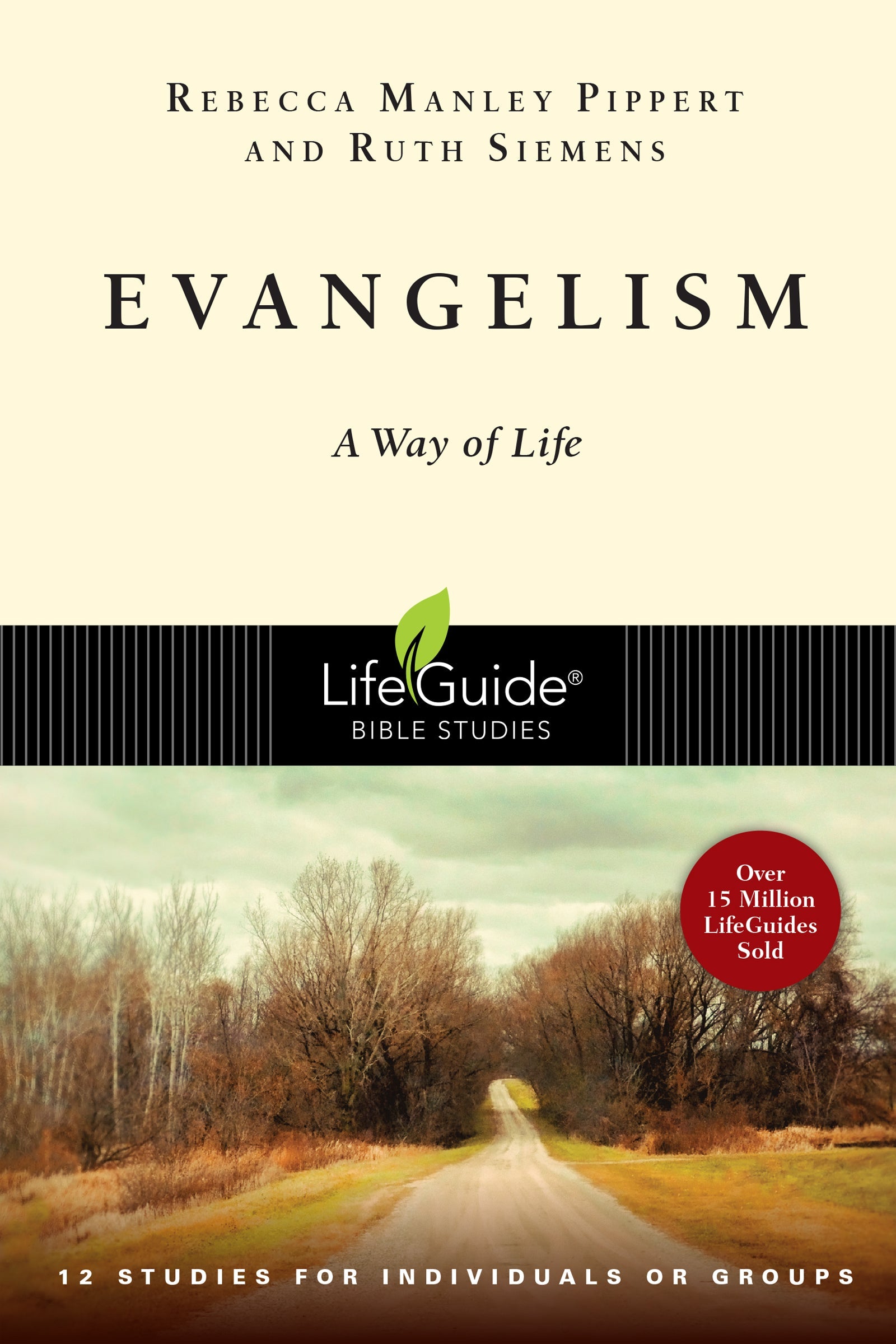Description
Evangelism can be intimidating. But it can also be a natural and exciting way of life. These 12 studies will help you discover creative ways to share the gospel in your everyday situations and surroundings.
Introduction
Getting the Most Out of Evangelism
This section introduces the topic, explains the structure followed in each study and offers tips for those approaching the study on their own as well as those participating in a group.
Session One
Why Spread the Good News?
Why is a judgmental, critical spirit so frequently the "disease of the devoted," as was the case of the Pharisees?
Luke 15:1-2, 11-32
Session Two
A Life That Speaks
Paul had told the Colossians that the great "mystery," the secret of the Christian life, was "Christ in you, the hope of glory!" When have you seen the power of someone's witness following a dramatic change in lifestyle?
Colossians 3:5–4:6
Session Three
Getting People Interested
What relationships do you see between the "thirst" Jesus has been speaking of and the Samaritan woman's immoral past? Think of seekers you know. In what ways do they indicate they are spiritually thirsty?
John 4:4-30
Session Four
The Good News
Peter begins his message to these Gentiles by characterizing the gospel as "the good news of peace through Jesus Christ, who is Lord of all." How would you explain to someone what it means to believe in Jesus?
Acts 10:23-48
Session Five
Creative Communication
Jesus could simply have said that eternal life comes from surrender and faith in him. Instead, he asks the man a question. How can asking good questions help us to communicate the gospel more effectively?
Luke 10:25-37
Session Six
An Unlikely Seeker
Why does Jesus risk his reputation by entering Zacchaeus's home? What stereotypes of Jesus might your nonbelieving friends have? How can you change these stereotypes?
Luke 19:1-11
Session Seven
Counting the Cost
What lesson was the crowd supposed to draw about discipleship from the example of the foolish builder? How can we responsibly determine if a seeker understands enough to make a commitment?
Luke 14:25-35
Session Eight
Friendship Evangelism
Jesus used a "come and see" approach. Why would this be more effective than asserting his deity? How can we help our nonbelieving friends to "come and see" Jesus in action?
John 1:35-51
Session Nine
Talking with Strangers
Together in the chariot Philip and the traveling stranger have one of the first recorded investigative (evangelistic) Bible studies. How can you be prepared to lead spontaneous Bible discussions when occasions arise?
Acts 8:26-40
Session Ten
Crosscultural Evangelism
Paul's words to the Athenians were obviously based on Scripture. So why did he quote Greek poetry instead of the Bible? What books, movies or songs might you use constructively in evangelism?
Acts 17:16-34
Session Eleven
Balanced Expectations
In verses 14-20 Jesus is telling this crowd about itself. What four kinds of listeners can we expect in an average group of nonbelievers, whether we are giving a sermon or evangelizing individuals?
Mark 4:1-25
Session Twelve
Facing Opposition
Why do you think the believers pray for boldness rather than freedom from opposition? How can we distinguish boldness from the tactlessness and brashness that turn people off?
Acts 4:1-31
Total number of pages - 81 pages
Rebecca Manley Pippert is an internationally known speaker on spiritual renewal, evangelism and character formation. She has written several popular books, including Out of the Saltshaker, Hope Has Its Reasons and A Heart for God. Her Saltshaker Resources includes four brief books that include everything you need to introduce those you care about to Jesus.
Ruth Siemens was a pioneer of campus fellowships in Latin America and Europe with the International Fellowship of Theological Students. She founded Global Opportunities to help Christians support themselves abroad as they integrate work and witness.

